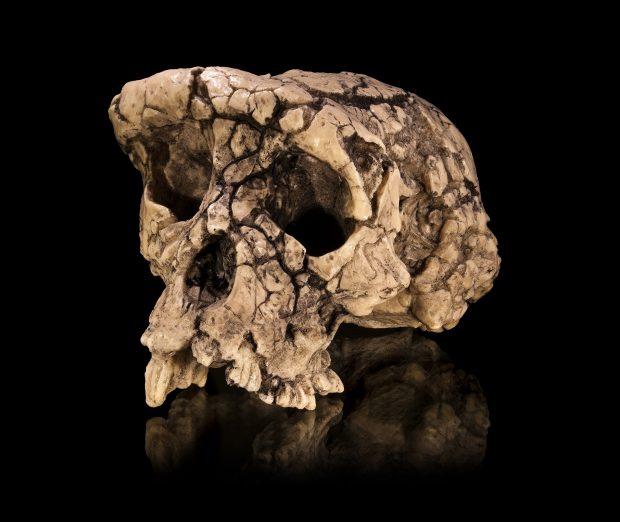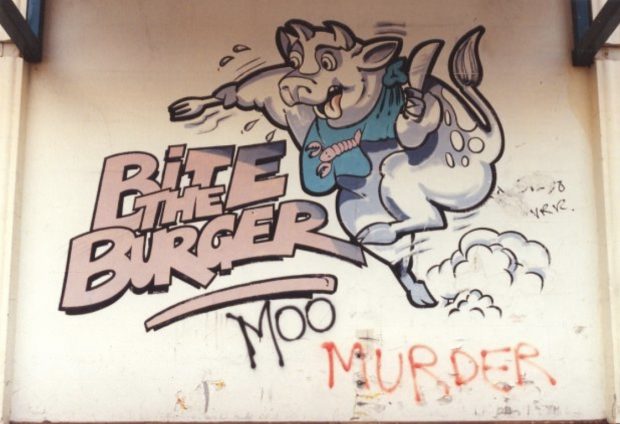
Angus Taylor | Nov. 14, 2018
Evolutionary biology teaches us that species are not rigidly separate categories of essentially different kinds of creatures. Richard Dawkins has pointed out that the absence of living hominin relatives of our species (such as Homo habilis or Australopithecus afarensis) has facilitated the idea that there is an unbridgeable gap between humans and other animals. He maintains that the successful breeding of a human/chimpanzee hybrid would profoundly challenge such thinking. “Politics would never be the same again, nor would theology, sociology, psychology or most branches of philosophy. The world that would be so shaken, by such an incidental event as a hybridisation, is a speciesist world indeed, dominated by the discontinuous mind.” [1] Now David P. Barash argues that it would be ethically desirable to create such individuals, which he dubs “humanzees”. Barash admits the possibility of various negative consequences (including for the humanzees themselves), but thinks the project would be worth it in order “to drive a stake into the heart of that destructive disinformation campaign of discontinuity, of human hegemony over all other living things.” [2]
Traditional thinking in the Western world has justified human exploitation of other creatures on the basis of our superior intellectual abilities, i.e., our reasoning powers and our status as moral agents, which allegedly confer on us an intrinsic worth not possessed by non-humans. But in recent times, as scientific inquiry and philosophical argument have increasingly demonstrated the lack of any sharp line between all humans and all non-humans, the traditional justification for human domination has become increasingly unpersuasive. Does this mark the beginning of the end for the ideology of domination?
Unfortunately, not. Instead of human domination being justified by our inherent difference from other animals, it is now being justified by our inherent connectedness to them! Domination now assumes a green guise. What I call the new argument from nature claims that, precisely because we are natural beings, our ecological position as top predators entitles us – indeed, requires us – to exploit and consume other creatures to maintain a healthy balance of nature.
And so “It’s natural!” has become the rallying cry of hunters, bloggers, foodies, farmers, and some philosophers intent on defending the old order. “Sustainable agriculture requires manure from domesticated animals,” we are told. “Managed grazing by herds of cattle is the key to regenerating degraded land.” “Supplementing your diet with vitamin B12 in pill form is not natural.” “We didn’t fight our way to the top of the food chain just to eat tofu.” “Eating meat is what gave our ancestors big brains!”
Most of this sort of thing can be subsumed under the general notion of the “circle of life” – an ecological rule that in order for anything to live, something else must die. It is folly, to this way of thinking, to imagine that we humans can remove ourselves from this circle. Rather, we should embrace our place in it, exploiting and consuming other creatures, albeit in a sustainable manner that respects the natural order of things.
An argument for this view can be found in Eat This Book: A Carnivore’s Manifesto by French philosopher Dominique Lestel. The ethical vegetarian/vegan, says Lestel, wrongly imagines that we can transcend the natural conditions of existence, which involve the mutual dependence of creatures in a web of predation. “By being willing to eat animals, I acknowledge in particular and in an intimate manner that there are no ‘free lunches’ in the world – that is, that one cannot want to be an animal and at the same time not want to be implicated in the cycles of life and death that are essential to being an animal. I kill in order to live, just like all other animals.” [3] In this manner Lestel tries to turn the tables on vegetarians/vegans, claiming it is they who are driven by a false sense of human exceptionalism.

A form of appeal to nature can also be found in commercial advertisements for meat, where animals are frequently depicted as positively enthusiastic about their impending death and dismemberment – what has been called “suicide food” on a website that has catalogued such images. [4] What is going on here? Approaching the matter of killing and consuming animals as a joke is one way to avoid confronting the moral issue involved. At the same time, the message that these domestically bred animals are contentedly, even happily, fulfilling their telos by becoming food merges their status as partly products of human artifice with the idea that their lives and deaths are part of the natural order of things, and therefore unproblematic.
So would it really be a good idea to create humanzees in order to destroy the traditional barrier between humans and non-humans? Quite apart from the technical and ethical issues involved in such a project, the recent turn to the new argument from nature as a way to justify continued human domination of the natural world warns us that breaking the spell of domination is not so straightforward.
The “natural” order of things can be, and typically is, invoked for any number of purposes. Take a recent scientific study that argues that “The regular consumption of starchy plant foods offers a coherent explanation for the provision of energy to the developing brain during the Late Pliocene and Early Pleistocene while the development of cooking, and a concomitant increase in salivary amylase expression, explains how the rapid increases in brain size from the Middle Pleistocene onward were energetically affordable.” [5] I like to recall this whenever I have a craving for French fries. Why should I resist? After all, it’s brain food. My desire for fries is only natural.
[1] Richard Dawkins, “Gaps in the Mind”, in Paola Cavalieri and Peter Singer, eds., The Great Ape Project: Equality beyond Humanity (London: Fourth Estate, 1993). <http://www.animal-rights-library.com/texts-m/dawkins01.htm>
[2] David P. Barash, “It’s Time to Make Human-Chimp Hybrids”, Nautilus Issue 58 (March 8, 2018). <http://nautil.us/issue/58/Self/its-time-to-make-human_chimp-hybrids>
[3] Dominique Lestel, Eat This Book: A Carnivore’s Manifesto (New York: Columbia University Press, 2016), 40.
[4] <https://suicidefood.blogspot.com/>
[5] Karen Hardy et al., “The Importance of Dietary Carbohydrate in Human Evolution”, The Quarterly Review of Biology, Vol. 90, No. 3 (September 2015), pp. 261-2.
